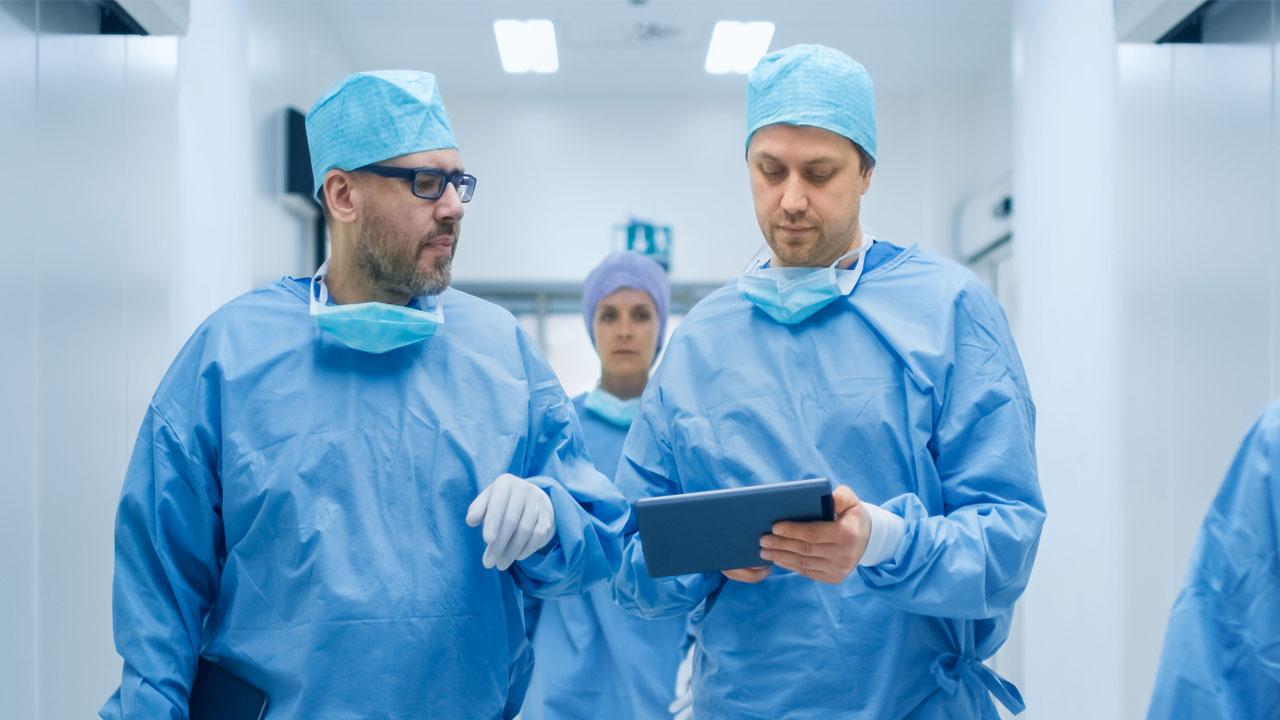A Double Life in the Scrubs
The Hippocratic Oath is one of the oldest binding documents that doctors swear to, stating that they will treat the ill with the best of their ability, they will preserve the patient's privacy, and they will teach the secrets of medicine to the next generation, and so on (in short anyways). Not only do doctors have to remain obedient to the Oath, but they also have to constrain and behave in ways that divide their normal personality and their working personality. In good faith, all doctors are compassionate and empathetic to their patients. They wouldn't be wanting to help people just for the profession of it, they actually are passionate about the differences they are making. However, often times, doctors have to learn how to place emotions aside for the better treatment of the patients. Ever heard of the saying, "You're too close to this"? I remember meeting a surgeon (he was dating a family friend) and he had fit the stereotypical "doctor personality" that I had created, due to meeting and conversing with multiple doctors. He was quick, witty, and very sarcastic. He seemed to lack "normal people behaviors" which meant during the dinner, we as people, would be just having a conversation about our day. I saw other people staring and concluded that they were listening. I saw him staring, and it was different, as if he wasn't just listening, but analyzing and observing. The doctors I have met are very quick minded, in a way that meant that they always had smart aleck comebacks, they joked around, and they perfectly fit those people in movies who are sociopaths. Which is weird to me, since they probably have greater compassion than most jobs. It got me thinking.... Do doctors hold two different identities, one that they show at home and one that they show in the office? Do they just be themselves the entire time? How does the profession affect them mentally? Or change them mentally? And lastly, do the two identities, if they exist, actually merge?
One thing that boggles me is their lack of sensitivity to blood, damage, and/or bodily fluids. Especially surgeons. Often times, when I see someone wincing to a gunshot, cut, or anything during a movie scene, I believe it's because they are exhibiting empathy. So how do surgeons block that out. Do they just naturally not feel anything when cutting a human person in half? Perhaps, the uncanny of opening a human body is a mentality which shows why not everyone can be surgeons (besides the great amount of years spent in school). Maybe that is why the surgeon I met, could crack as many cold, sarcastic jokes and never seem to care how it affected the other person. But also, what if a doctor is naturally a warm, people person. How does keeping the professional side of doctor/patient relationships affect them? Does the professional personality sometimes carry over to when they get home? Does the job make them view their personal relationships differently? I quite recall, the surgeon always finishing up last minute paperwork, and talking medical terms within a voice recorder before coming to the dinner table. Maybe all my encounters with him wasn't accurate since each time, it was his come down after work stuff. Who knows? I want to be a doctor when I grow up, so in time, I can see first hand, whether the job affects my own personality.


One thing that boggles me is their lack of sensitivity to blood, damage, and/or bodily fluids. Especially surgeons. Often times, when I see someone wincing to a gunshot, cut, or anything during a movie scene, I believe it's because they are exhibiting empathy. So how do surgeons block that out. Do they just naturally not feel anything when cutting a human person in half? Perhaps, the uncanny of opening a human body is a mentality which shows why not everyone can be surgeons (besides the great amount of years spent in school). Maybe that is why the surgeon I met, could crack as many cold, sarcastic jokes and never seem to care how it affected the other person. But also, what if a doctor is naturally a warm, people person. How does keeping the professional side of doctor/patient relationships affect them? Does the professional personality sometimes carry over to when they get home? Does the job make them view their personal relationships differently? I quite recall, the surgeon always finishing up last minute paperwork, and talking medical terms within a voice recorder before coming to the dinner table. Maybe all my encounters with him wasn't accurate since each time, it was his come down after work stuff. Who knows? I want to be a doctor when I grow up, so in time, I can see first hand, whether the job affects my own personality.


Comments
Post a Comment